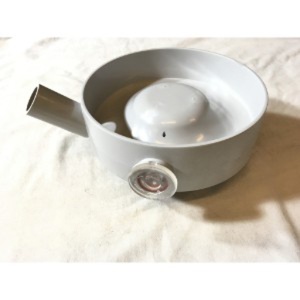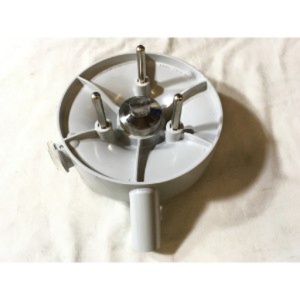
Lower Canister with Spring - Breathing Circuit Gas (BCG)
| 1406-8218-000 | |
| New | |
| Anesthesia Delivery | |
| Aestiva | |
| GE HealthCare | |
| GE HealthCare LCS Parts | |
| GE HealthCare | |
| N/A | |
Enter your approval number and submit to add item(s) to cart.
Please enter approval number
OR
Don't know your approval number? Call 800-437-1171
Enter opt 1 for the first three prompts, and have your System ID available.
If you add item(s) to cart and submit your order without the
approval number, GE will contact you before your order
can be confirmed for shipment.
Select your approver's name and submit to add item(s) to your cart
Please Select Approver Name
OR
Don't know your approval number? Call 800-437-1171
Enter opt 1 for the first three prompts, and have your System ID available.
If you add item(s) to cart and submit your order without
selecting an approver, GE will contact you before your order
can be confirmed for shipment.
Features
- To be used with aestiva anesthesia machine
- Good surface finish
- Resistant to vibration and pressure shock
- Easy to assemble and disassemble
Product Overview
The Lower Canister with Spring is used in Aestiva anesthesia machines. This is sub-part used in CO₂ bypass assembly and is fixed in lower portion of bypass assembly . Caster dish lower is made of brass alloy 360. Brass alloy 360 is a standard alloy of copper and zinc containing about 3% lead. The basic 60-40 mixture of copper and zinc forms an alloy with good strength and corrosion resistance the small amount of lead provides the superior machinability that gives the alloy it familiar name. With these three constituent elements – copper, zinc and lead. The bottom of the canister assembly has a spring component in center portion of the part. The spring is made up of a music wire material. The material used for spring is cold drawn metal with high uniform tensile strength used for high quality springs and wire forms. it is the toughest steel for small springs and has excellent fatigue properties, high strength and shock load ability. The spring is covered by the cam and the cam is locked by using a retainer lock. Where the spring gives some opposition to the cam for the purpose of creating a tight fit.




